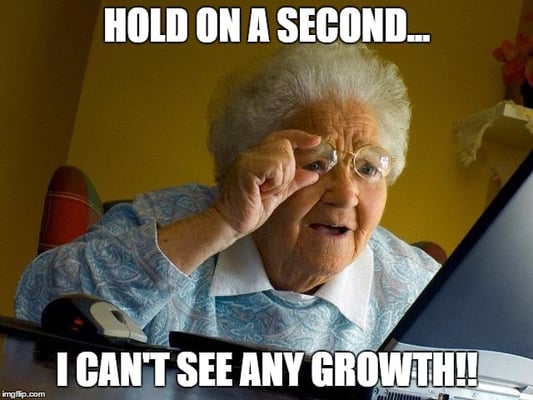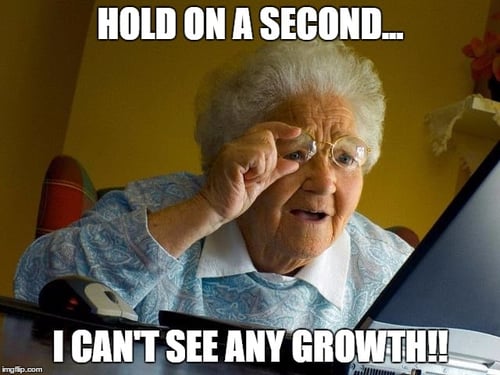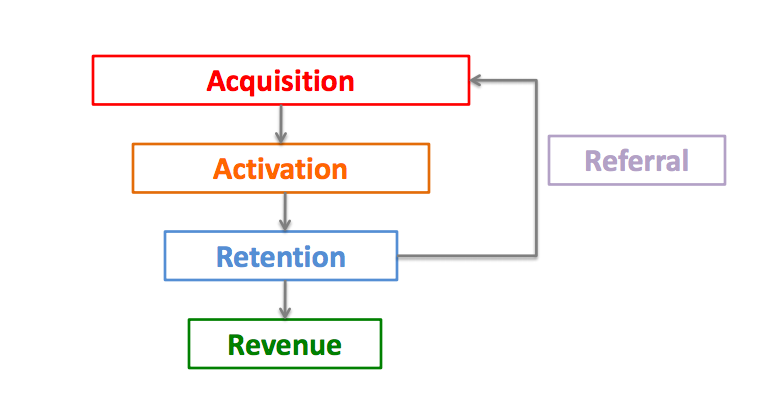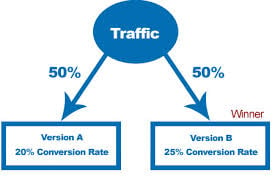
Growth Hacking in Israel, It’s Complicated
Reading Time: 8 minutes (but it's worth it... we promise)
Dropbox, Facebook, Mailchimp, Slack, Zapier
Here, in the land flowing with milk, honey and startups, there are high odds that if you work in or with a marketing team, you’ve heard the phrase ‘growth hacking your startup’ being thrown around.
We explained the concept of ‘Growth hacking’ in our previous blog. In short, Growth Hacking is the process of developing the right ‘hack’ or strategy that will accelerate a company’s growth.
Growth Hacking in Israel: It’s Complicated
In recent years, the tech world has witnessed the enormous success of companies that have seemingly boomed over night, causing the term ‘Growth Hacking’ to gain a huge amount of attention.
As the buzz and attention surrounding Growth Hacking has increased, Israelis too have tried to jump on the bandwagon. Of course, this is of no surprise. Entrepreneurship is in our blood and we love finding new ways to take our businesses to new heights. ‘A simple ‘hack’ can transform my business - what could be bad?’
So we research the hot Growth Hacking tactics - we read the blogs, we listen to the webinars, we discuss it with our colleagues, we give it a try and…. nothing happens…. or at least, things don’t change the way we thought they would.
As a marketing agency for startups, we see, experience and share startups’ frustration with Growth Hacking. So often, startups are seeking our help with trying to find the next ‘hack’ that is going to increase their virility and turn them into the next Uber. Whilst working with companies on PPC campaigns, content ideas and social media strategies, it has become clear that so many of us have simply missed the point about Growthing Hacking. Growth Hacking is not a magic solution.
All to often, Israeli startups start their Growth Hacking journey with hope and excitement, but end up disappointed because of unrealistic expectations.
Delving into Growth Hacking over the past few months has made us understand the need to clarify the misrepresentation of Growth Hacking… before we all give up on it. So, we thought we’d share with you what we’ve learned about Growth Hacking and why it’s perfect for Israelis and their startups… we’ve just been looking at it wrong.
Setting The Record Straight - 3 Growth Hacking Realities
#1: Growth Hacking is not a quick fix (and it doesn’t solve the problem of a crappy product)
After hearing about successful ‘Growth Hacks’ we tend to assume that growth hacking is going to result in immediate growth and instantaneous results.
Well it seems we’ve got it wrong.
It took Facebook 5 years to make a profit. When Pinterest created a growth strategy which required new users to request and receive an invitation and go on a waiting list, it took 4 years for them to see the results.
Creator of Spark Capital, Nabeel Hyatt explains that a true growth hacker ‘asks the deeper questions to find long-run sustainable growth”. It’s not a sprint - it’s a marathon. Growth Hackers need to look beyond the obvious optimizations into a deep understand of the product or feature. If the aim is to create long-term user retention, then the solution will not be instant.
More importantly, Growth Hacking cannot fix a bad product, nor can it magically create a product/market fit if it does not exist. To quote Entrepreneur, Marc Andersson, without a ‘killer product’, everything is just a waste of time. It’s often hard to admit the reality, but if your product, app or software isn’t innovative enough, doesn’t serve people’s needs or just doesn’t work, all the growth hacking in the world won’t help.
#2 Growth Hacking is not a magic potion or a one trick pony
So often we fall into the trap of looking for that one magic hack and want to just ‘go for it’, but it’s just not that simple. Growth Hacking requires a strategy, clearly defined goals, process and patience.
Think of Growth Hacking a little like a science experiment
Aim: Define clear actionable goals for the ‘hack’... Bring more users to our landing page, increase my email lists, increase downloads etc etc.
Of course, the overall aim is always going to be to increase your customer base, but you may choose to focus on a particular aspect of the customer funnel in order to achieve this. Sean Ellis claims we should, ‘constantly obsess over every aspect of the customer experience”. Think of it a little bit like a relationship… Getting visitors to your site/landing page is the dating stage, ‘Activation’ is like getting ‘engaged’ to your customers and Retention is the wedding (sort of… you get what we are saying here….)
Measurement: How do you keep track of your progress relative to your goals? You need a metric. Constantly measuring and analyzing your results is the only way to know if you’ve achieved your goals.
You need to implement analytics to measure your goals. By measuring things like Conversion Rates, Monthly Recurring Revenue, Customer Churn Rate and so on, you can begin to understand what’s going on and how you could improve those numbers.
Fandrop growth hacker, Ken Zi Wang, says growth hackers have two sides to their approach. The first is about getting “very creative in finding new ways to get users.” The second gets “very scientific in looking into metrics very carefully.” Whether you choose to use Google Analytics or measure your results through tools such as Optimizely, Pagewiz or Unbounce… being on top of what is going on is key.
Play to your strengths: Leverage your existing strengths and knowledge to create a ‘hack’ strategy that is going to work.
For example, we know from famous examples such as Hotmail’s ‘P.S I love you’ at the end of every email, and Dropbox’s referral strategy, that people love sharing what they know (it makes them feel important). Great. If that’s something you already know, put it to good use. By the same token, you have to work with what you have. If you have a huge email list, but a pathetic Twitter following, you may choose to create a ‘hack’ that is going to leverage your email numbers to increase your Twitter stats and customer acquisition. Get it?
Optimize: Experiments are not just stand alone trials. Once you have developed and tried your hack, you need to keep working on new ideas, testing them and then testing them again (we know it sounds annoying, but experience shows that it what ). A/B testing is the core of any growth hack and the best friend of every marketer.
Udemy, a platform for online learning, decided to leverage their huge email list for their recent ‘hack’. In the hope of increasing customer retention and revenue, they sent two separate welcome emails to new subscribers with different text and imagery. Email ‘B’ generated 150% more revenue in the first week and 94% in the first 30 days compared to Email ‘A’. Now how would they have known that if they didn’t test both?
Repeat: Old hacks die hard. Growth hackers always need to come up with new ideas, or optimizing existing ones.
#3 Growth Hacking is hard to get wrong… promise
Growth Hacking sprouted in startups because it doesn’t rely on blowing a marketing budget on just one ‘hack’. In a large company, creating a new marketing or advertising strategy, waiting for approval and implementing the idea can take months (and a lot of marketing dollars). Growth Hacking is perfect for startups because it lends itself to a more dynamic form of marketing.
So many tools… so many hacks to try
Your marketing process is like a running machine. Assuming the machine is well-oiled, you have the power to add or change whatever part of the machine you wish in order to create a new possibility for growth. Thanks to the hundreds of marketing tools available to startups (our recent blog names just a few), the possibilities for Growth Hacking is limitless. Tweak a PPC campaign, A/B test your landing page, run a followers campaign on Twitter… the list goes on. As long as you keep referring to your experimental process, there is no reasons not to try it all!
Israelis and Growth Hacking - The Match Made in Heaven
With all this in mind, it seems that Growth Hacking was created with the Israeli startup in mind. To successfully Growth Hack you need to be willing to ‘give anything a go’. Israelis seem to have the fearlessness, guts, and chutzpah to be willing to try pretty much anything, shake it off if things don’t work, and try something else.
Our tendency to move in small units, to be tech-savvy and to take risks allows for the dynamic marketing Growth Hacking needs.
Chutzpah - Aaron Ginn claims “good growth hackers have a deep understanding and curiosity”. Reading between the lines; Growth Hackers need a little bit of chutzpah. That chutzpah and Middle Eastern brashness is actually what can make us fantastic Growth Hackers. A true Growth Hacker doesn’t just succeed, celebrate and move on. They keep asking, keep examining and keep assessing the hack from every angle. Growth Hackers need to keep asking questions - to their users, to their team, to the people who have churned. Grasping the product and the user experience on a deep level is what will make a successful Growth Hacker.
Techy - Ok so we are definitely called the startup nation for a reason. We love anything tech and a ‘tech mindset’ is perfect for a Growth Hacker. Most Growth Hackers should have some basic knowledge of programming and coding, even if it’s just to help them better understand A/B testing or how to convey their ideas to the programmers or engineers. If you were scared off by the metrics we spoke about earlier then don’t be… Naturally ‘techy’ people are also more likely to be data driven. Whether you are using Google Analytics or Mixpanel, understanding the data in front of you is important, but if you are a true Sabra, this will be like a walk on the beach!
Creative - . We didn’t invent Waze, Oktopost and desalination from being boring and complacent. Michael Birch, one of the first growth hackers and co-founder of Bebo, says, “growth hacking is both an art and a science.” The tech and data-driven side of the personality is just one side of Growth Hacking… the creativity is the other. After all, there is no point in A/B testing when you can’t think of idea A or idea B. Whether it be Track.io’s T-shirt hack, or Zapier’s landing page hack, without at least some form of creativity, none of these ideas would have been born. A bit of creativity goes a long way….
Brotherly Love - “Growth Hacking isn’t done alone in a company - it’s a team sport.” It is not about hiring a single person to perform a single role. Growth Hacking is a mindset that needs to be integrated throughout the company, from product development and engineering to sales and marketing. It only works if every member of the company is working together and focused on GROWTH.
Put a little growth hacking in your life
Growth hacking is not rocket science. But it does involve patience, a clear strategy and careful planning. Ok, so that magic hack we were all looking for to turn a business around doesn’t exist, but that doesn’t mean that we can’t be successful Growth Hackers. In fact, as Israelis, it’s pretty much in our blood.
Liked our article? Here are some others that might help you in your Growth Hacking journey
















